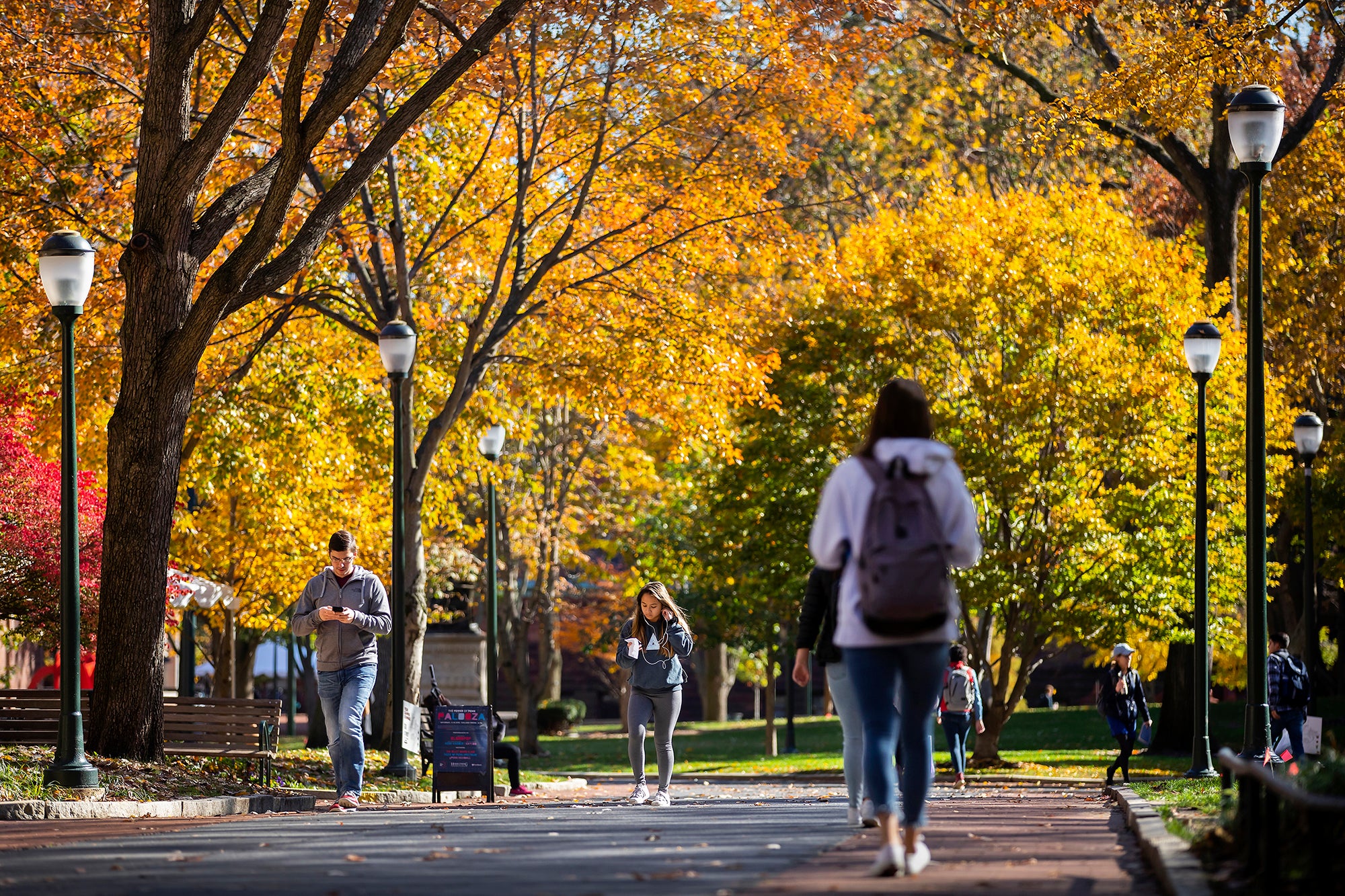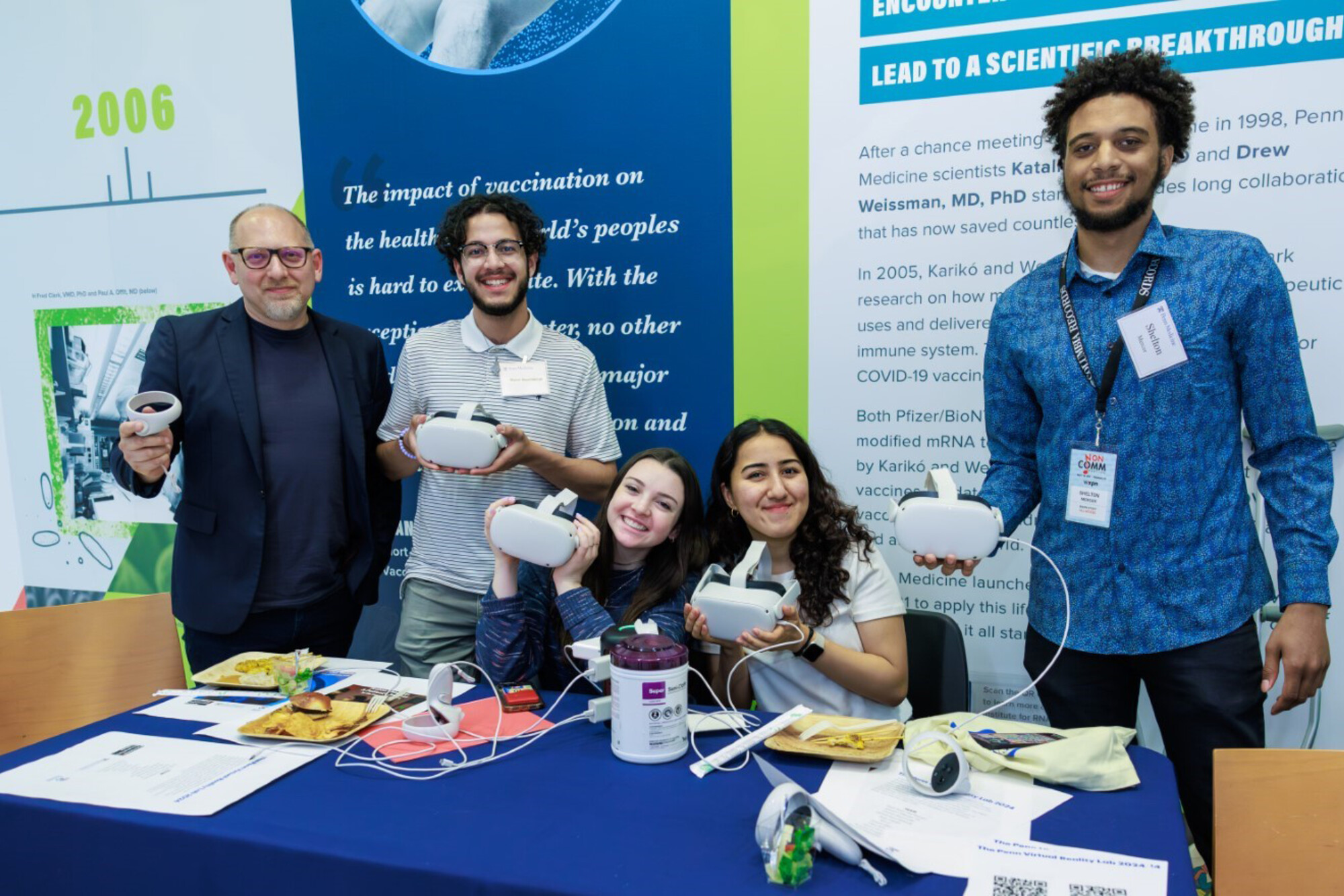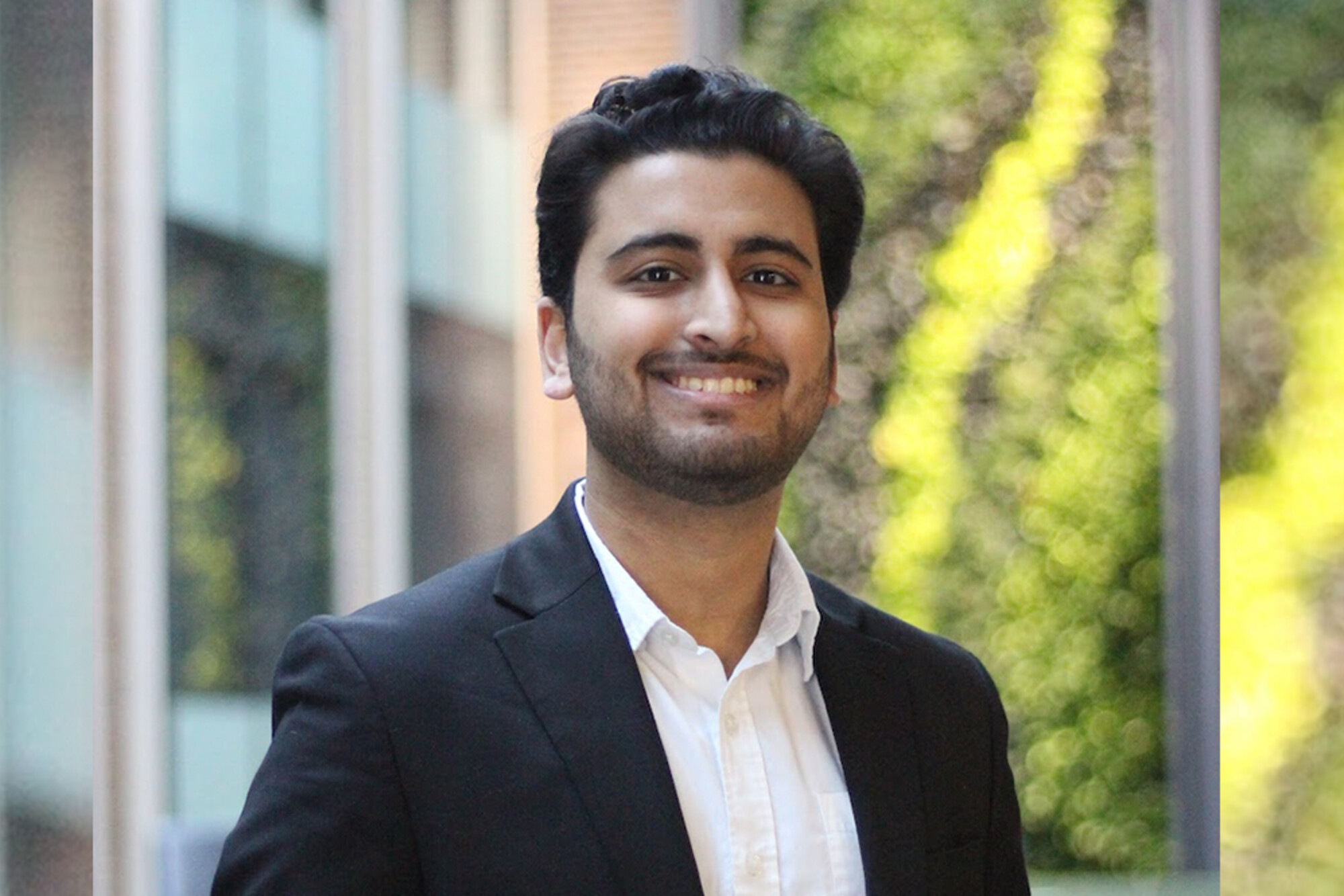
Research News

Introducing the Penn AI Council
The Council consists of five faculty members collaborating to enhance visibility and impact of AI research across Penn.
Focus On: Cancer Research


Easing patient fears of radiation treatment, via virtual reality

White House names Abramson Cancer Center neuro-oncologist a Cancer Moonshot Scholar

Combo immunotherapy produces distinct waves of cancer-fighting T cells

Understanding the cellular mechanisms driving solid tumors’ robust defense system
Focus On: Innovation
Focus On: Nanotechnology

The Singh Center for Nanotechnology turns 10

‘In vivo’ RNA-based gene editing model for blood disorders developed

RNA lipid nanoparticle engineering stops liver fibrosis in its tracks





